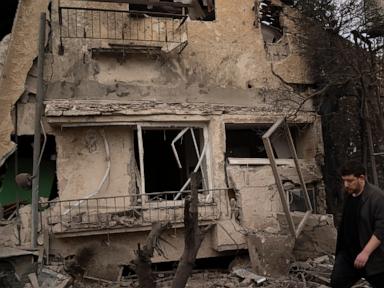ARTICLE AD BOX
Gulf countries condemned the Israeli occupation government's approval of the construction of thousands of new settlement units in the West Bank, warning that the decision represents a "Judaization attempt" and prevents the achievement of peace and stability in the region.
On Thursday, five Gulf countries condemned the Israeli occupation government’s approval of the construction of thousands of new settlement units in the West Bank, warning that the decision prevents the achievement of peace and stability in the region.
Saudi Arabia said in a statement to its Foreign Ministry that it "strongly condemns the Israeli occupation's decision to approve the construction of about 3,500 new settlement units in the West Bank, and the attempt to Judaize large parts of the West Bank, including Jerusalem."
She stressed that the Israeli occupation's decision "contradicts all international resolutions, international human rights law, and United Nations charters, and prevents the achievement of opportunities for peace and stability in the region."
The UAE also "strongly condemned the new settlement decision of the Israeli government," and expressed in a statement by its Ministry of Foreign Affairs its "rejection of all measures aimed at changing the existing historical and legal situation in the occupied Palestinian territory."
It affirmed its "categorical rejection of all practices that violate international legitimacy resolutions," warning that they "threaten further escalation and tension in the region, and hinder efforts to achieve peace and stability."
In the same way, Kuwait renewed in a statement by its Ministry of Foreign Affairs, “calling on the international community and the Security Council to stand strongly in the face of these violations.”
She called on "all countries of the world not to recognize the illegal occupation decision," warning that it "eliminates any chance for peace in the Middle East, and keeps the region in a state of turmoil and tension."
Qatar, in turn, condemned the Israeli decision, and stressed in a statement by its Ministry of Foreign Affairs that this step is “a flagrant violation of international law and international legitimacy resolutions, especially UN Security Council Resolution No. 2334, and a blatant assault on the rights of the brotherly Palestinian people.”
She called on the international community to "assume its responsibilities, including taking the necessary measures to implement Security Council resolutions, and obliging the Israeli occupation to stop its settlement policies in the occupied Palestinian territories."
The Kingdom of Bahrain also condemned the Israeli decision, in a statement by the Ministry of Foreign Affairs, and considered it “a violation of international law and a threat to the chances of achieving peace in the region.”
The Kingdom renewed its "steadfast and supportive position for the Palestinian people and the establishment of their independent state on the 1967 borders with East Jerusalem as its capital, in accordance with the two-state solution and international legitimacy."
In the same context, the Organization of Islamic Cooperation condemned the decision and stressed that it is “illegitimate and illegal under international law and relevant United Nations resolutions.”
In a statement, the organization called on “the international community to assume its responsibilities in putting an end to all crimes and violations committed by the Israeli occupation in all the occupied Palestinian territories.”
The United Nations and most of the international community consider settlement in the territories occupied since 1967 illegal, warning that it undermines the chances of addressing the conflict in accordance with the principle of the two-state solution.
The unveiling of the new settlement units came at a time when the Israeli army has been waging, since October 7, a devastating war on the Gaza Strip that has left tens of thousands of civilian casualties, an unprecedented humanitarian catastrophe, and massive destruction of infrastructure and property, according to Palestinian and UN data.
Israel insists on continuing the war, despite appearing for the first time since its establishment in 1948 before the International Court of Justice, on charges of committing “genocide” crimes against the Palestinians.
.png)
 8 months ago
5
8 months ago
5









 English (US)
English (US)